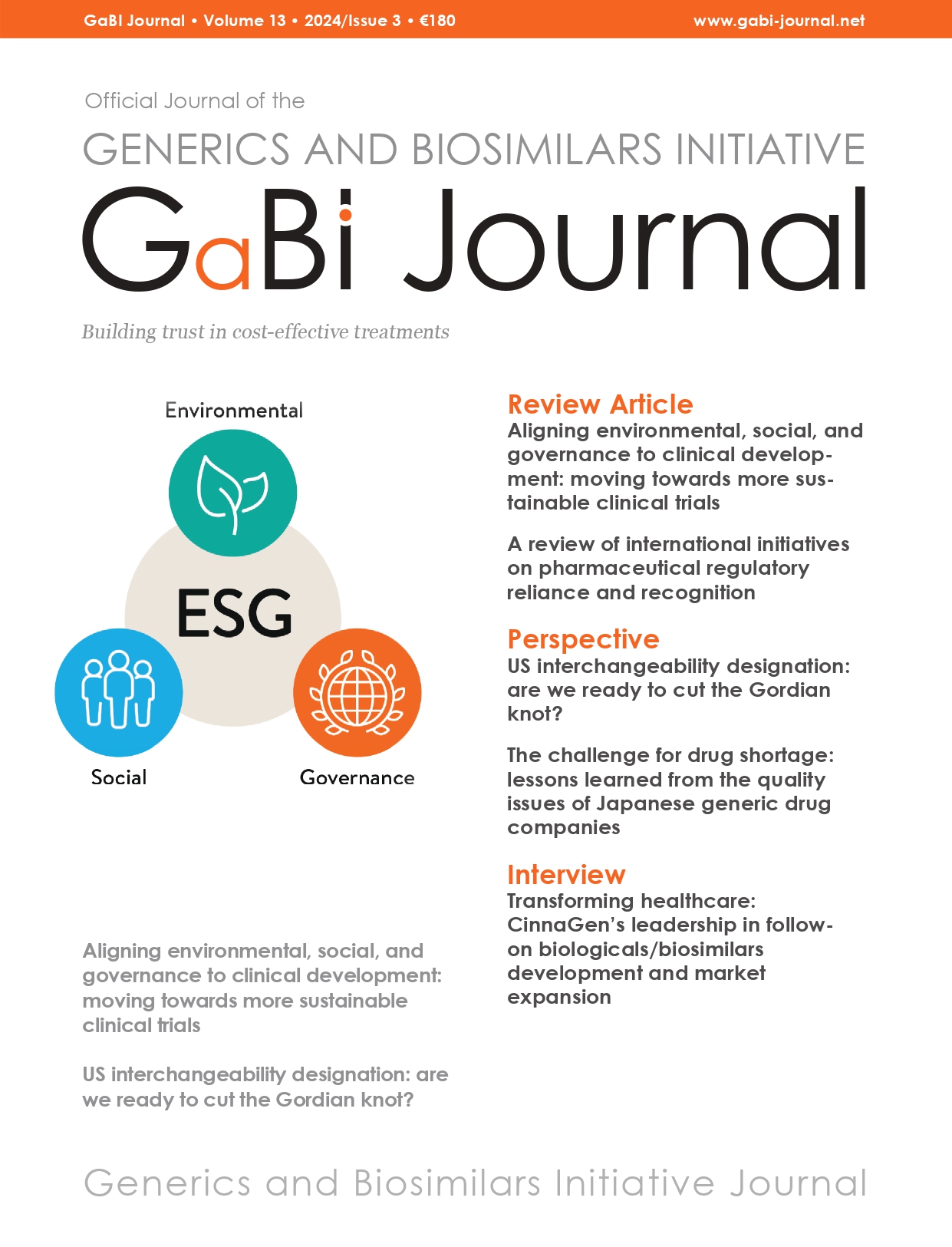A multidisciplinary perspective on biosimilars
Published: 2016/12/05
A biosimilar is an officially regulated and approved copy of an originator biological therapy. Authors Khraishi et al. aimed to provide a comprehensive review of the biosimilar development process and multidisciplinary guidance on their potential therapeutic utility in clinical practice [1]. They discussed clinical developments in the introduction of biosimilars across the expert disciplines of gastroenterology, nephrology, oncology and rheumatology, and from a payer perspective. They highlight a common need for ongoing pharmacovigilance, robust head-to-head clinical studies, and real-world data to establish the long-term risk-benefit profile of biosimilars.
Regulatory guidelines for biosimilar development and approval are rigorous and undergoing constant refinement. The process of licensing approval for all biosimilars requires demonstration of comparability in quality, efficacy and safety between the biosimilar and reference (originator) product, which is undertaken in a stepwise procedure of non-clinical and clinical evaluation. In contrast, the clinical application of biosimilars remains under-recognized by physicians across therapeutic areas.
According to the European Medicines Agency (EMA), the aims of clinical evaluation are to resolve slight differences potentially arising in previous steps of the development process and to confirm comparable clinical performance between the biosimilar and reference products. In aiming to show comparability, therapeutic equivalence is the generally accepted design, whereby a pre-specified clinically accepted margin is appointed (and approved by EMA) to establish whether differences exist between biosimilar and reference product. Clinical studies are actually confirmatory only with a focus on immunogenicity, pharmacokinetic equivalence and therapeutic equivalence in a previously approved indication.
Although potential concerns exist regarding switching between an originator and a biosimilar, a previous review found no evidence of any relevant safety issues from either clinical trial or post-marketing surveillance data.
There remain gaps in the process that clinicians should be aware of in order to effectively and safely prescribe biosimilars. Although the continuously evolving nature of the biosimilar approval process will undoubtedly resolve these issues in time. Issues include microheterogeneity and batch-to-batch variability, as well as potentially intended and unintended drift due to manufacturing changes over time. Because of the inherent variability of biological systems, biologicals cannot be identical to themselves. Therefore, the biosimilar must replicate the variability of the biological being copied. The rigorous nature of the biosimilar development process reviewed here offers a safeguard to clinicians who may have experienced some uncertainty regarding the use of biosimilars in their clinical practice. As the authors noted, there is a real potential for biosimilars to revolutionize biological therapy by increasing access to a wider patient population across disciplines.
Long-term post-marketing real-world data demonstrating clinical effectiveness, safety and finally cost savings are still required to complete the success story of biosimilars.
Abstracted by Professor Majed Khraishi, MD, Clinical Professor of Medicine (Rheumatology) at the Memorial University of Newfoundland, Canada.
Conflict of Interest
Several of the authors of the research paper [1] reported conflicts of interest, including having received honoraria or consulting fees from pharmaceutical companies. For full details of the authors’ conflicts of interest, see the research paper [1].
Editor’s comment
Readers interested to learn more about biosimilars are invited to visit www.gabi-journal.net to view the following manuscript published in GaBI Journal:
Biosimilars: patient and physician acceptability is the fifth hurdle to market competition
Readers interested in contributing a research or perspective paper to GaBI Journal – an independent, peer reviewed academic journal – please send us your submission here.
Related article
Approval of biosimilars in rheumatology
Reference
1. Khraishi M, Stead D, Lukas M, Scotte F, Schmid H. Biosimilars: a multidisciplinary perspective. Clin Ther. 2016 Mar 14. pii: S0149-2918(16)30092-3. doi:10.1016/j.clinthera.2016.02.023. [Epub ahead of print]
Source: www.gabionline.net


